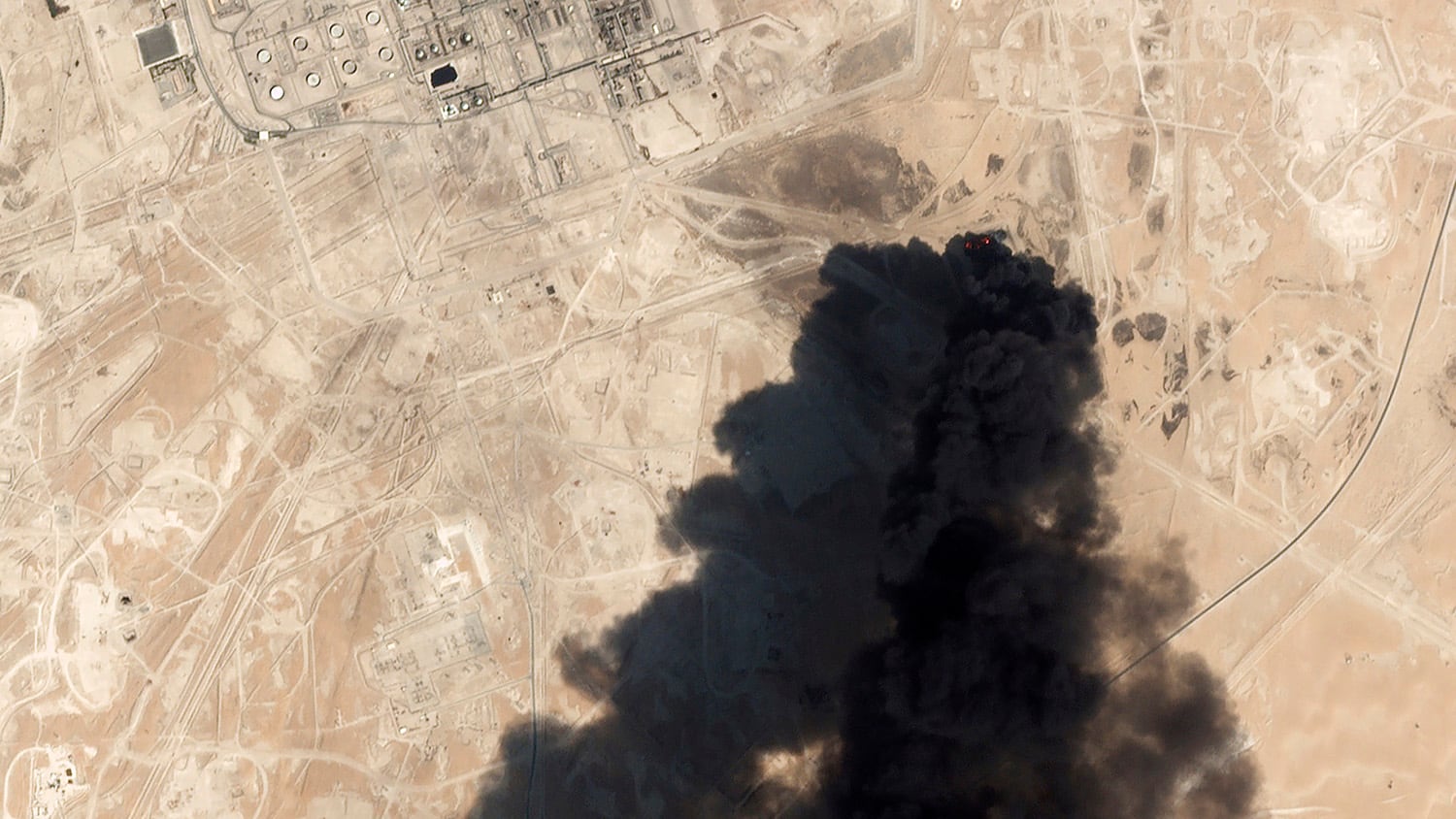A recent port visit by the Arleigh Burke-class destroyer Ramage to Beirut was the first for a U.S. warship in 36 years, according to Lt. Andriana Genualdi, a Navy spokesman. And it came at a time when the region is roiling with Iranian-backed militants wreaking havoc from Israel to Yemen.
One expert said the visit might be a message and a warning to Iran and its proxy forces to stop destabilizing the region.
A broader regional conflict bolstered by Iranian militants appears to be spilling out across the Middle East.
On Saturday, Secretary of State Mike Pompeo blamed Iran for the attacks on two Saudi oil facilities that have caused oil production to plummet. Iranian-backed Houthi rebels based out of Yemen claimed responsibility for the attack.
President Donald Trump tweeted on Sunday evening that the U.S. was “locked and loaded depending on verification” of who perpetrated Saturday’s attack on Saudi Arabia.
Saudi Arabia claimed without evidence on Monday that the attacks against its oil facilities were not launched from Yemen and were carried out by Iranian weapons, according to the New York Times.
Secretary of Defense Mark Esper tweeted on Monday that the U.S. would work through its partners to address the “unprecedented attack and defend the international rules-based order that is being undermined by Iran.”
Over the last several weeks, Israel has been the target of anti-tank missile strikes from Iranian-backed Hezbollah militants, and rocket and drone attacks from Gaza.
Israel Defense Forces say they also recently thwarted a multi-drone attack coordinated by Iranian forces and Hezbollah militants from Syria.
RELATED

Conflict in the region is brewing as Israel prepares for parliamentary elections Tuesday that could see Prime Minister Benjamin Netanyahu win a fifth term.
Saturday’s port visit to Beirut by the Ramage was described by the State Department as a “historic” and “one-day goodwill visit.”
The last time a Navy ship ported in Beirut was 1983 — the same year a bomb-laden truck blew up the Marine barracks in Beirut killing 241 service members, mostly Marines. The attack was blamed on Hezbollah militants.
“This remarkable U.S. ship, docked in this remarkable Lebanese city speaks volumes about the partnership between the U.S. and Lebanese militaries,” U.S. Ambassador to Lebanon Elizabeth Richard, said in a press release.
Phillip Smyth, a research fellow with the Washington Institute, said the U.S. warship’s visit may be seen as signaling or a warning by the U.S. to Hezbollah and other Iranian proxies operating in the region.
“Though, one could also take the view that we are sending mixed messages, given the government in Beirut is pro-Hezbollah,” Smyth told Military Times.
“We are committed to our partnership with the Lebanese Armed Forces and our shared goal of maritime security in the region,” Vice Adm. Malloy, said in a news release about Ramage’s Saturday port visit.
Hezbollah has recently been ratcheting up tensions with Israel. And according to Smyth, the militant group has aided Houthis in Yemen with weapons and propaganda support.
On Sept. 1, Israeli Defense Forces announced that Hezbollah militants fired two to three anti-tank missiles from Lebanon at a defense outpost in northern Israel. There were no reported injuries, but the IDF said it returned fire on the militants.
Israel also claims the Iranian-backed militants in Lebanon are seeking to manufacture precision guided missiles with an accuracy of up to 10 meters.
The IDF posted an image of a facility on social media that they claim is an Iranian supplied and Hezbollah-run plant designed to build precision missiles. The facility, according to the IDF, is located north of the city of Nabi Chit, which is in Lebanon’s Hezbollah controlled Bekaa Valley.
The IDF said it also thwarted a drone attack launched from Syria on Aug. 24. The IDF said the attack was carried out by the Islamic Revolutionary Guard Corps Quds Force unit with collaboration from Hezbollah militants, according to a news release.
And from Sept. 6 to Sept. 11, Israel has been subject to multiple rocket attacks from Gaza. The IDF claimed the attacks were carried about by Hamas militants. IDF aircraft responded to the attacks on Sept. 10 by striking 15 targets in Gaza.
As Iran flexes its proxies across the region, Israel appears poised to be dragged into a broader regional war with Hezbollah and Iranian proxies in Lebanon and Syria and Hamas militants in Gaza.
Israel accused Lebanon of doing nothing to curtail Hezbollah, in a video posted by the IDF on Twitter. Israel also blamed Lebanon’s government for allowing Hezbollah to abuse the Lebanese people.
Saudi Aramco said Saturday’s Houthi-claimed attacks on its oil facilities have cut its ability to produce about 5.7 million barrels of crude oil a day.
Shawn Snow is the senior reporter for Marine Corps Times and a Marine Corps veteran.





